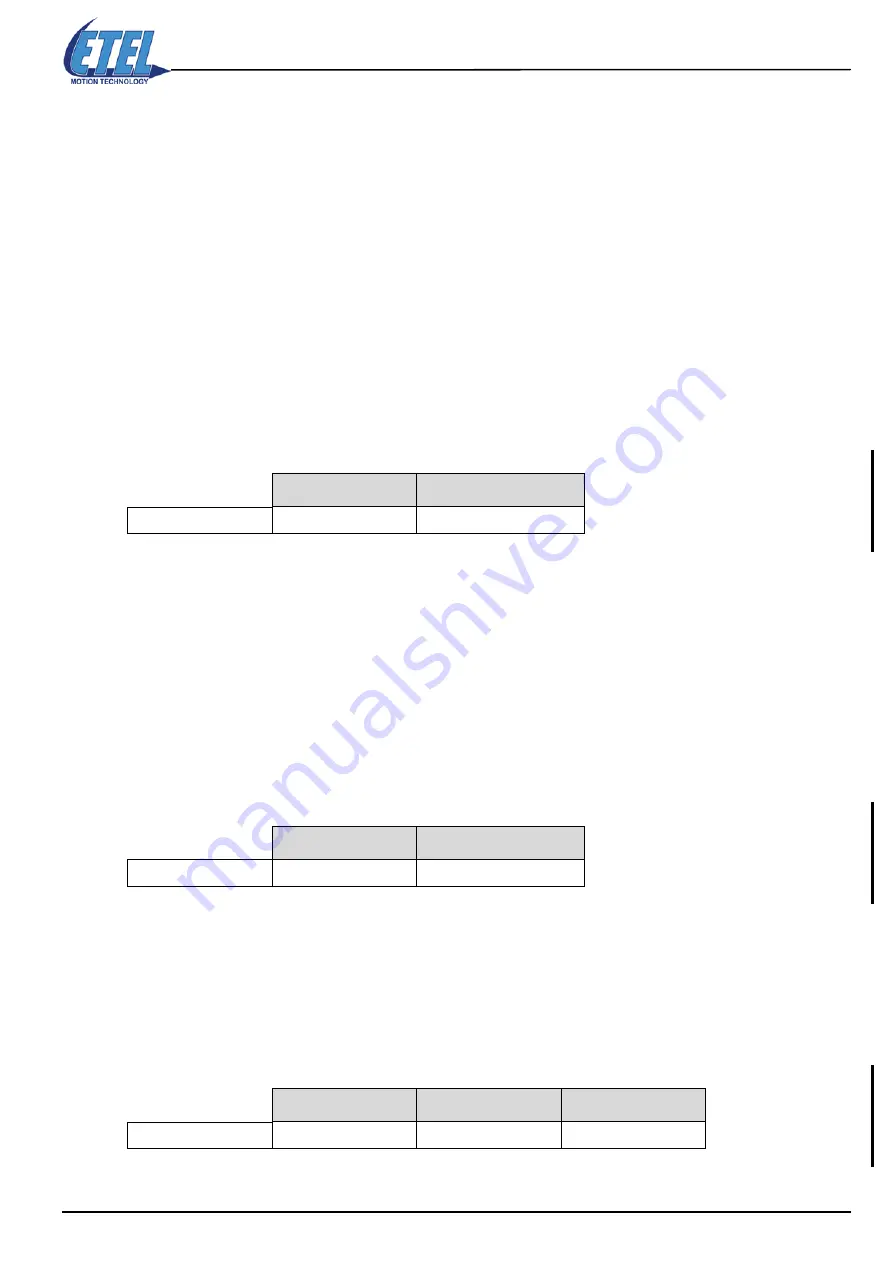
ETEL Doc. - Operation & Software Manual # DSC2P 903 / Ver. F / 3/6/05
Chapter A: Internal functioning & architecture
Operation & Software Manual
Direct Drives & Systems
23
4.
Controller timing
This explanation is for your global understanding of the controller. It is not a critical point to understand for the
controller operation.
The controller works on interrupts. Only the interrupts with an impact on the controller timing are explained
here:
4.1
STI (Slow Time Interrupt)
The STI is used for:
• Execution of commands coming from several sources: controller internal sequences, TEB communication,
optional boards (DSO-CAN, e.g.)
• Trajectory calculation (Set point generator)
• RTI (Real Time Interrupts) and TRI (Triggers) management
Default value:
To obtain the actual STI value in seconds, divide M245 by M242: STI [s] = M245 / M242
4.2
FTI (Fast Time Interrupt)
The FTI is used for:
• Linear interpolation between the trajectory points calculated by the STI
• Position loop regulation and position encoder interpolation.
Calculation of force reference (Fc) delivered to the current loop regulator.
• EBL2 communication, transmission/reception
Default value:
To obtain the actual FTI value in seconds, divide M244 by M242: FTI [s] = M244 / M242
4.3
CTI (Current Time Interrupt)
The CTI is used for:
• Current loop regulation
Default value:
To obtain the actual CTI value in seconds, divide M243 by M242: CTI [s] = M243 / M242
DSC2P / DSC2V
DSCDP / DSCDL / DSCDM
Slow Time Interrupt
1/6kHz = 166.67
µ
s
1/2kHz = 500
µ
s
DSC2P / DSC2V
DSCDP / DSCDL / DSCDM
Fast Time Interrupt
1/24kHz = 41.67
µ
s
1/18kHz = 55.56
µ
s
DSC2P / DSC2V
DSCDP / DSCDM
DSCDL
Current Time Interrupt
1/24kHz = 41.67
µ
s
1/18kHz = 55.56
µ
s
1/72kHz = 13.89
µ
s
















































